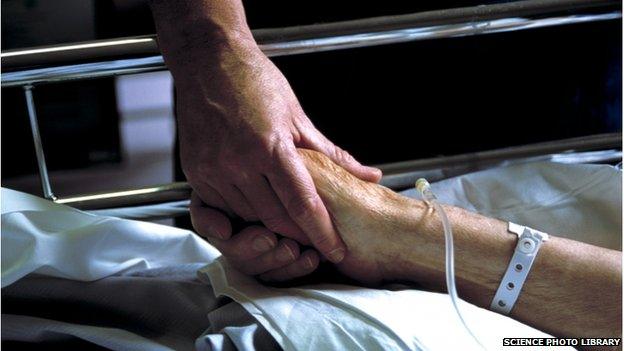Analysis: Assisted dying debate
- Published
- comments

There is a profound gulf between those who see assisted dying as a fundamental human right for the terminally ill and those who fear that right could easily turn into a duty for the disabled and vulnerable.
It was the case of the late Tony Nicklinson, who had locked-in syndrome and wanted doctors to help him die, which proved a powerful talisman for the pro-lobby.
The Supreme Court rejected that argument last month, but invited Parliament to reconsider the law on assisted suicide as it could be incompatible with human rights legislation.
It is ironic that Mr Nicklinson would not have been eligible for help under the Assisted Dying Bill as he was not terminally ill and lacked the ability to self-administer a lethal dose.
Profound change
The assisted dying bill would allow adults of sound mind, with six months to live, the right to end their life at a time of their choosing.
It would be a profound step for society, modelled on the law in Oregon in the US.
If experience there is a guide it may lead to around 1,000 people a year in England and Wales choosing an assisted death.
Supporters believe opinion has shifted decisively in their favour since the Lords last rejected the measure eight years ago.
However, there seems no realistic possibility that the Bill will become law without government support and Parliamentary time.
But this issue - arguably one of the most significant facing society - will keep re-emerging and those of both sides of the divide will have their arguments ready.